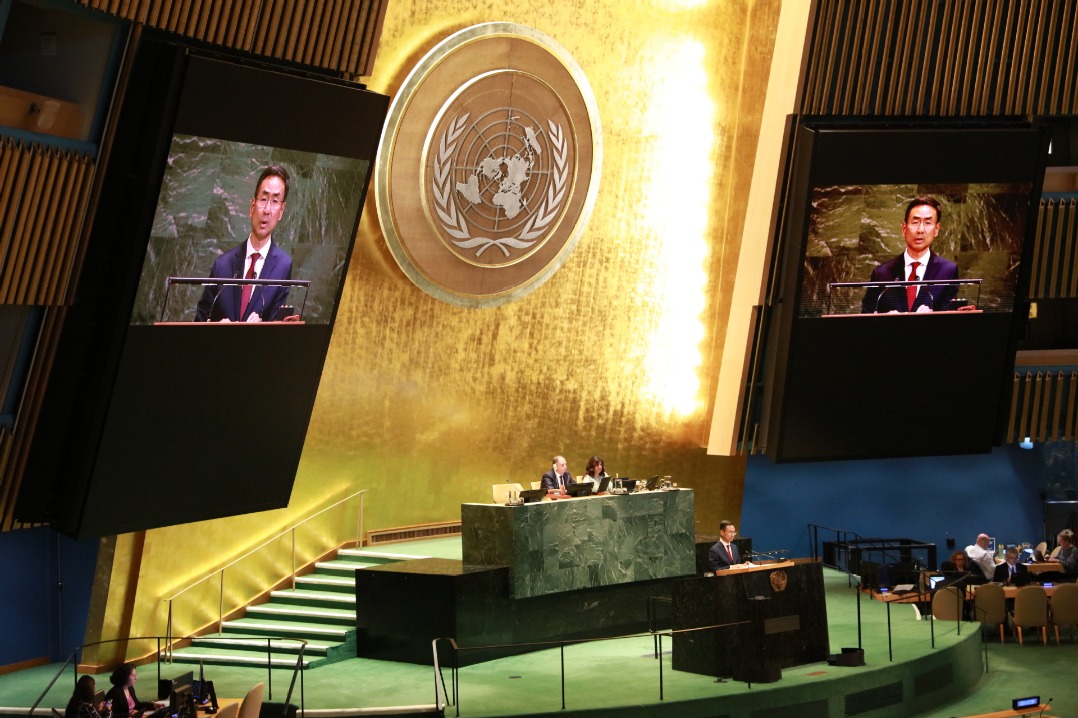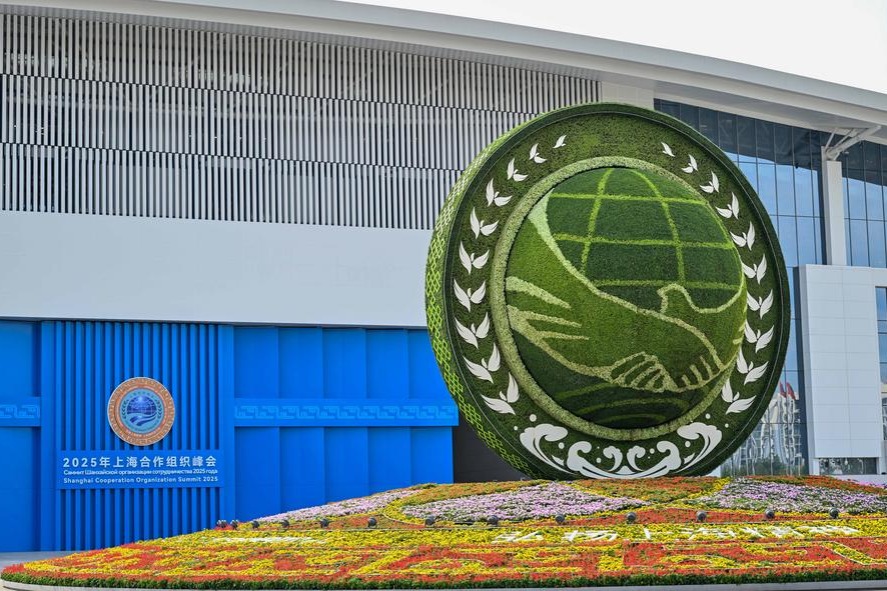Brazilian filmmaker builds career bridging China and Brazil
From documenting Chinese lives through popular songs to new projects in scientific cooperation, Moura Barba connects cultures with stories of innovation, resilience and hope

Language also gathers people
From the lyricism of Sounds of Beijing to the social reality of Chinese immigrants, her role in Sleeping with Open Eyes helped strengthen her position as a specialist.
"There is not much being produced in Brazil about China today," she said. "Usually, when projects come up, they find me. I have collaborated on fiction features as well as documentary productions."
In the film, Moura Barba worked as a casting consultant, responsible for translation, dialogue supervision and preparation of actors Chen Xiaoxin, Wang Shin-hong and Liao Kai-ro, all of them speakers of Chinese only.
The story follows Kai, a migrant who arrives in Brazil, where he discovers Fu Ang's umbrella shop and crosses paths with Xiaoxin and other workers in a skyscraper. The narrative unfolds through encounters and missed encounters in the urban landscape of Recife, in Brazil's northeastern state of Pernambuco, portraying a very different region than those most often shown in international media, especially Rio de Janeiro.
"It is a film very different in its structure," Moura Barba said. "Not by chance, it won a Critics' Prize at the Berlinale, one of the most important European festivals."
She expressed satisfaction with her work in the movie, highlighting her role both on the multinational set and in supporting the actors who came from abroad. The leading actors, she said, quickly adapted to such a diverse culture, performing in dialogues that brought together two languages learned in a very short time.
"It was great," said the filmmaker. "I love to be on movie sets that bridge cultures in some way, and of course the most memorable experience was working with the actors. I learned a lot, including through language, about how the truth of acting emerges, even in a fiction film."
Everything from a deep learning process
This whole journey has been built on an exceptional capacity to create and manage film structures and casting, but Moura Barba said language is also central to her development.
Learning Chinese, she said, means experiencing a new way of interpreting the world — one that she can share with clients and partners at Miluspanda.
"Unlike the Western alphabet, the Chinese way of writing is through mimicked or, at least, elaborately developed images," Moura Barba said. "Most of the country's cultural elements are based on dealing with image. So the way Chinese can give forms to their feelings through speaking was definitely a central part of my approach to Chinese people in cinema."
Her teacher and BFA supervisor, professor Yang Lin, praised her ability to work across cultures.
"Moura Barba deals very nicely with local peoples, with completely different cultural backgrounds and various ethnic areas, which is a very important skill for a person."
More than the technical and cognitive differences between Western and Eastern languages, Yang emphasized the social aspect of any language. He said that understanding another language, and its process of cognition, leads to better ways of dealing with multiple cultures.
"The language I understand is also part of emotional expression. Language and cultural heritage have an important connection, but the starting point must be mutual understanding and respect. Communication with empathy between Brazil and China can go beyond linguistic differences. What Moura Barba has achieved is the best proof of that."

































